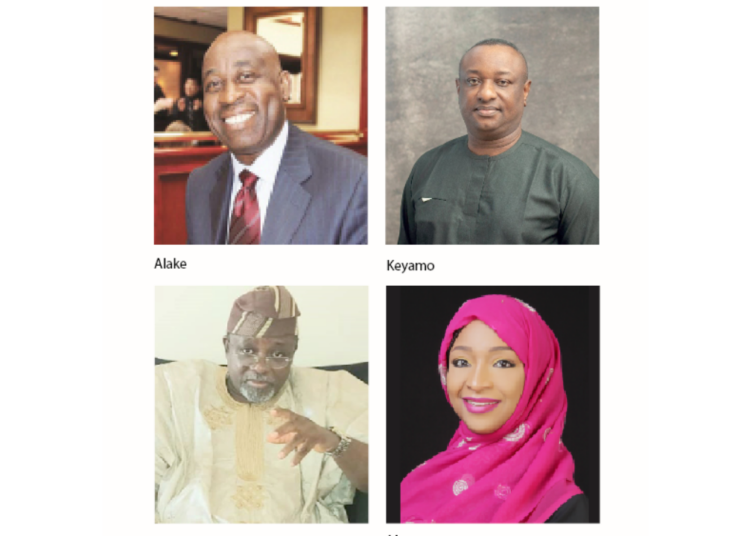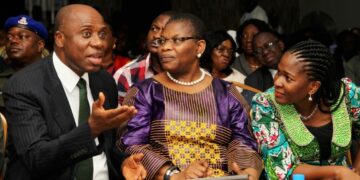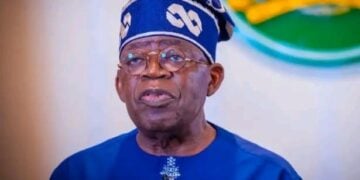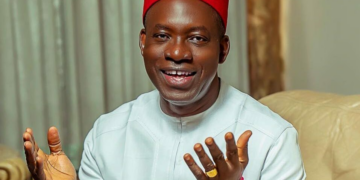The 2023 general elections have come and gone, but the cumulative effect of the innumerable roles played by institutions, organisations and individuals would certainly leave indelible footprints in the annals of how Nigeria’s burgeoning democracy undergoes political evolution. Never before has an election circle elicited robust debates, brickbats, info-maneuvers and ad hominem attacks like this year’s polls. There is a congruence of opinion among pundits that the elections made invaluable contributions to the enrichment of Nigeria’s democratic process.
Push or pull, Nigeria eventually had a president-elect, Senator Bola Ahmed Tinubu. But the ambition that handed the former Lagos State governor the presidency of the largest democracy in Africa wasn’t conceived overnight. It was a process characterised by negativity, gales of endorsement, grassroots mobilisation, cyber bullying, social media propaganda and other forms of campaign strategy.
In the 2023 campaigns, the three leading political parties, All Progressives Congress (APC), Peoples Democratic Party (PDP) and Labour Party (LP), presented formidable fronts in their attempt to woo Nigerians. Former Vice President Atiku Abubakar, who’s the candidate of the PDP, has a reputation for vast interests in the country’s media circle. The third force, which fielded a business mogul, Obi, added candour to the 7th presidential contest in the fourth republic.
Described by analysts as the first mainstream politician to be elected president in the fourth republic (1999-2023), Tinubu’s mastery in assemblage of talents seems to defy imagination. This was reflected in the composition of the media directorate of his campaign team that slugged it out with the PDP and Labour Party.
The trio of Atiku, Tinubu and Obi’s campaign took advantage of the new media to engage in media bullying, intimidation and propaganda. That is to be expected because mind game and media manipulation are the ultimate weapons in politics. Obi’s supporters, popularly known as the ‘Obedients’, cashed in on the largely uncensored social media space to bully followers of other political parties.
Among the marketers-in-chief are media gurus and leading indispensable personalities like Dele Alake, Festus Keyamo (SAN); Femi Fani Kayode; Bayo Onanuga; Tunde Rahman; Felix Morka; Biodun Ajiboye andHanatu Musawa, among others.
These spin doctors in the APC campaign media team swayed public perception in favour of the president- elect even when, at a point, it seemed the balance of terror was in favour of the opposition. Under fire, they were like cannons overcharged with double cracks in the ensuing attacks and counter attacks.
The army of ‘Obedients’ who invaded the country’s social and traditional media spaces with their vulgar and hostile brand of campaign was legion. They bashed the APC presidential candidate with incisive vituperations, raising damning issues in respect of his name, age, health, ancestry, schools, drugs, corruption and citizenship.
But the Tinubu camp proved it was formidable enough with the crop of media generals. In the end, they disdained what many had considered as the political fortune of the opposition, squaring them up wit for wit, strength for strength.
Dele Alake
Special adviser and director on Strategic Communication to the Tinubu/Shettima Presidential Campaign Council may not have been conspicuous in the battle field but he played more of behind-the-scene roles, giving direction and mapping out communication strategies. He was the general in the media war who provided the tipping point at which the momentum for changes became unstoppable, even as he unknotted the volatility, uncertainty, complexity and ambiguity that characterized the strategic media environment.
As a close ally to the president-elect, Tinubu is a familiar product that was easy to market. A journalist cum technocrat, Alake served as a former commissioner for Information and Strategy in Lagos State between 1999 and 2007 under the then Governor Tinubu.
In the last electioneering campaign, Alake came face to face with the arduous task of defending Tinubu’s perceived gaffe. It took his media wizardry to bury the “Bala blu, bulaba” mantra which became rounds of jokes and criticism on social media in a viral video against the APC presidential candidate. His media mastery convinced the vast majority of Nigerians that the “Bala blu” comment was Tinubu’s jocular way of using the “Hullabaloo” word to imply that the noise and interruptions of the audience would have made the town hall a joke, and unsuccessful at best.
Festus Keyamo
Another outstanding personality is fiery Senior Advocate of Nigeria (SAN) and minister of State for Labour, Festus Keyamo. At one point the supporters of the ‘Obidient’ Movement nearly ran Keyamo down. But engaging them during press conference and television programmed, the director of Public Affairs/chief spokesperson of the Tinubu/Shettima campaign team was everywhere in the social, especially on the Twitter space, teaching pestle-wielding critics former presidential spokesman, Reuben Abati, once described as “the idle and idling twittering collective children of anger” some lessons in public commentary.
Despite his oratorical skills and mastery of the Queen’s language, it was difficult terrain for Keyamo, a legal luminary turned media aide, with the ‘Obedients’ brand of propaganda. But because he is a man with indomitable spirit, he tenaciously mesmerised the critics by holding on to the good about his principal. And by March 1, when Tinubu was declared president-elect, the superiority of his arguments became clear to his traducers
Biodun Ajiboye
With a shrill voice and piercing look of an Old Testament prophet, Otubna Biodun Ajiboye was everywhere on national television, including Channels TV, TVC, Arise TV, and other broadcast platforms defending Tinubu with the ferocity of a wounded lion. Though his role in the campaign was behind the scene like Alake, the marketing guru jumped into the public arena when it seemed as if the main spokespersons of the APC campaign in the media tirade were overwhelmed.
Surprisingly, Ajiboye made a surprise entry into the industry of spokespersons, proving that his talent in this regard had been hidden all the while, though he has been doing well as a seasoned media practitioner and marketing communications practitioner. His defence of asiwaju added very fundamental credibility to the whoke debate, just as he squared TV presenters up in a manner they probably have not been so fiercely confronted before.
Ajiboye who is assistant director, Media and Publicity, of the APC campaign train fiercely engaged critics of Tinubu, picking holes in the logic of their criticisms and making their argument look like elementary school debate. For instance, Ajiboye dragged Pastor Tunde Bakare of Citadel Global Community Church for urging Nigerians to vote out politicians who see the presidency as their entitlement, in a veiled reference to Tinubu’s ‘emi lokan’ comment. Hitting back at the cleric, he described Bakare as “an inconsistently unstable person”, urging him to steer clear of politics and stick to his pastoral duties.
Ajiboye replicated the feat in President Buhari’s victories at the 2015 and 2019 polls when he was national secretary of National Committee of Buhari Support Groups (NCBSG), the umbrella body of all the support groups that worked for APC’s success in 2015, with Buhari as the Grand Patron, Tinubu as Patron and Senator Abu Ibrahim as chairman, Board of Trustees.
Femi Fani-Kayode
Hate him or like him, Femi Fani-Kayode (FFK), is a media delight any day. Like Keyamo, he deployed his oratorical prowess, good command of English and rich knowledge of Nigerian history to ward off the social media wolves. His resilience was a huge resource to the campaign. The former minister of Aviation was the attack dog the campaign team always relied on to match vulgarity with vulgarity.
When the spokesmen of the Aiku/Okowa campaign team, especially Senator Dino Melaye, chose to be crude by resorting to ad hominem attacks, it was Fani-Kayode who taught them how to throw ethics to the wind by proving that indecency is a character that could be properly deployed to one’s advantage.
Though FFK is not queer to controversy, he stood his ground to defend a good course when the opposition resorted to blackmail and falsehood. The high point for him during the campaigns was when the DSS, for five hours, grilled him when he was invited to the headquarters of the secret police to answer questions on allegations he made about some army generals conniving with some presidential candidates to scuttle the 2023 general elections.
Bayo Onanuga
He came on the campaign train at a time of uncertainty and immense media propaganda against his principal, Tinubu. However, as it is said, a good pilot or sailor is known during stormy weather. Bayo Onanuga who is director, Media and Publicity, had no choice than to tackle some media houses he accused of partisanship in their reportage Tinubu.
Also a close ally of the president-elect, the relationship between Onanuga, a founding member of The News magazine and Tinubu dates back to many decades. This gave an edge while responding to issues about Tinubu.
Hannatu Musawa
The only female voice in the APC campaign media team, Hannatu Musawa, a United Kingdom-trained lawyer and renowned newspaper columnist, made invaluable contributions to the campaign. Musawa was everywhere on national television stations defending Tinubu. The deputy director, Public Affairs, of the campaign team also deployed the power of the pen to communicate and connect with millions of Nigerians. She spiced up the campaign with her versatility in the social media, where she ran into murky waters many times but was able wriggle her way through.
A video of Tinubu and vice president-elect, Kashim Shettima, giving alms to a man, which she posted on social media was misconstrued as the APC candidate giving bribe. She quickly came out to clarify that it was a rare show of compassion and benevolence by his principals, which she said is not common in this part of the globe.





